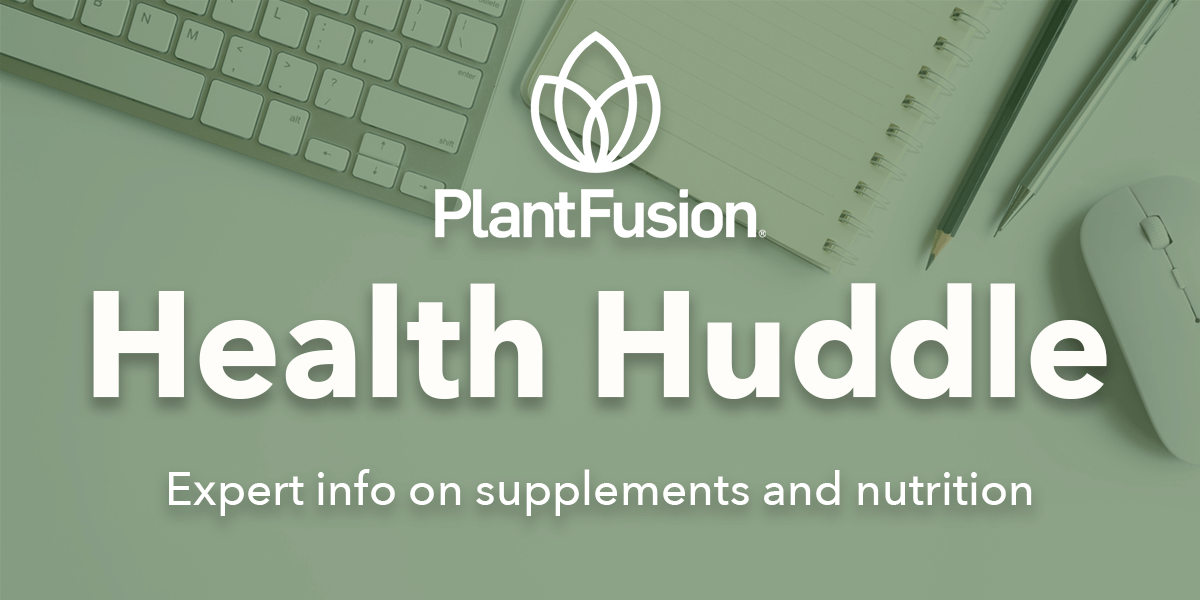It can be brain-boggling to choose a protein shake these days with the sheer number of products out there. And of course, each one is claiming to be the best with the best nutritional value.
For a long time, animal proteins like whey were considered the “most complete.” This is because they have the right balance and ratio of amino acids, primarily BCAAs and Glutamine, which are essential for rebuilding and repairing muscle tissue. And these are great attributes to look for when choosing a nutritionally efficacious protein shake. Those all-important amino acids are like building blocks in the way that bricks create a wall. If you weaken one, or pull one out, you weaken the entire structure—which is why the right balance and density is critical.
But here’s the problem: Animal-sourced proteins are not a great fit for everyone. This is especially true if you are trying to limit animal or processed dairy in your diet because of its tendency to promote inflammation and other chronic illnesses. Plus, if you’ve made the personal choice to go vegan, what then?
Plant-based proteins are gaining favor among the mass protein shake market because they are made from natural wholefood ingredients that provide additional nutritional benefits. But then again, not all plant-based proteins are created equal, either. Many are considered “incomplete” because they do not contain an effective amount of BCAAs and glutamine.
What are you supposed to do if you want a nutritionally efficacious protein shake without animal or processed dairy-sourced proteins but do not want to compromise on BCAAs and glutamine? We took that challenge and created Nature’s Most Complete Plant Protein.
➤ CLICK HERE to check out PlantFusion's Ultimate Guide to Plant-Based Protein
Why Are BCAAs and Glutamine Critical for Recovery?
BCAAs and glutamine have long been recommended for their ability to help rebuild and repair muscle tissues. But what are they?
BCAA is short for branched-chain amino acids, which refers to their molecular structure. Three BCAAs: leucine, isoleucine, and valine are included among the nine essential amino acids your body needs to be healthy. Essential amino acids cannot be produced by your body. You can only obtain them by eating certain foods.
While BCAAs help create the protein our bodies need, they perform specific functions with many essential biological processes, including repairing tissues, regulating blood sugar levels and reducing fatigue while you exercise.
- Leucine helps enhance physical performance as it boosts endurance as it delays deterioration of muscle by significantly increasing production of muscle proteins.
- Isoleucine regulates your blood sugar, gives your body’s energy levels a boost and plays a key role in transporting oxygen in your blood throughout your body, which is important for muscle repair.
- Valine provides nitrogen that helps synthesize alanine and glutamine in your muscles.

Glutamine is considered a conditional amino acid that can be found naturally in the body. In fact, glutamine is the most abundant amino acid in the body, used in every biological function. It is also one of the only amino acids that can cross the blood-brain barrier.
Glutamine supports gut function, provides immune support and other critical body processes, especially when the body is stressed. Glutamine plays a key role in digestive function and nutritional absorption. You see, this amino acid is crucial for the maintenance of mucosal integrity in the small bowel, which is essential for the gut barrier function. If the gut barrier function is compromised, then our bodies can’t absorb those nutrients critical to our health. Further, if there is a dysfunctional gut barrier, it can lead to multiple gastrointestinal diseases.
Glutamine is produced in muscle tissues and transported through the blood to areas in your body that need it. It plays an important part in providing fuel to various cells in the body. However, when your body is using more glutamine than your muscles can produce, muscle wasting can occur.
To achieve the best results with recovery from BCAAs and glutamine, you need to take an effective amount, but you also need to take it at the right times and the right balance. With glutamine, it is recommended to have 10 grams both before and after a workout. It is recommended that you have six to eight grams of BCAAs before and after a workout with protein.
No doubt, it can be a little tricky getting the right balance of BCAAs and glutamine. The good news is that we took all of this into consideration when we created our Complete Protein – see next section! An easy rule of thumb is to drink a protein shake 30 minutes before your workout and then 30 minutes after your workout. This gets your body prepared for being pushed physically and then replenishes it with the amino acids it needs for the recovery process.
Creating the World’s First Truly Complete Plant Protein

Experts recommend that we get the bulk of our protein from wholefood sources like vegetables and whole grains whenever possible. When PlantFusion introduced Complete Protein, it was seen as the first plant-protein to be as “complete” as animal proteins, including whey. Never before had a plant-based brand made this claim.
Our difference; instead of relying on one source of protein, we followed the old theory that the many is more powerful than the one. So using our Select Source™ process, we went around the world to come up with a blend of five different plant proteins that complement each other’s amino acid profile. We then add additional BCAA & Glutamine from plant-based sources to ensure that levels meet or exceed our standard for complete.
The resulting blend has a perfect PDCAAS (Protein Digestibility Corrected Amino Acid Score) of 1.0 (100%), which is equal to the PDCAAS of both whey and egg. The PDCAAS has been adopted by the Food & Agricultural Association (FAO) and the World Health Organization (WHO) as the preferred standard for measurement of protein value in human nutrition.
You no longer have to make that trade-off when choosing natural plant protein over animal or dairy-sourced protein drinks.
Don’t take our word for it,Click here to try Nature’s Most Complete Plant Protein!















